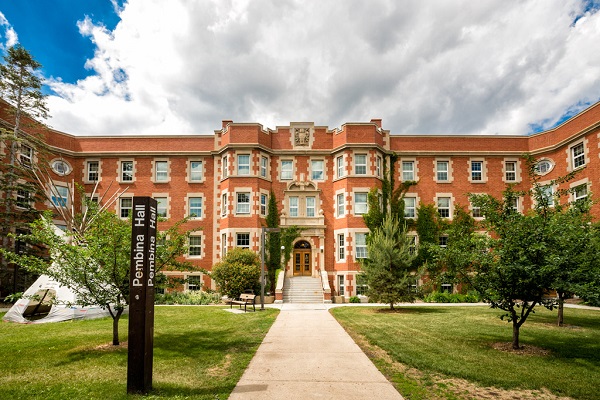University of Alberta discovery could revolutionize off-grid energy solutions
When University of Alberta chemistry researcher Robin Hamilton walked away from a combination of powders to let them sit in water overnight, he didn’t envision it could lead to a revolutionary discovery — one that could help remote communities or provide disaster relief aid when access to natural gas and potable water is an issue.
When he returned to the lab, the mixture was bubbling — a reaction that is extremely unusual.
“It ends up being that when you mix these (compounds) together, they interact, they work together and hydrogen comes off. It floored us,” says Hamilton, who consulted with chemistry professors Jeff Stryker and Jonathan Veinot and realized they had something remarkable on their hands.
The researchers discovered an inexpensive and easily produced catalyst (a substance that accelerates a chemical reaction without being affected itself) that when placed in any type of water with a small amount of power, produces hydrogen that can be fed into a combustion engine, or fuel cell to generate electricity along with distilled water that is safe to drink. (Video: The catalyst feeds a hydrogen fuel cell to power a propeller. Courtesy: Dark Matter Materials)
The catalyst is made with material that is non-toxic and plentiful. It’s easy and inexpensive to produce, making it an accessible alternative to current catalysts on the market. Since it can be used with any type of water, it has an edge over other ways to generate hydrogen, like water electrolysis.
“There’s a scarcity of potable water and that’s the biggest problem with water electrolysis to generate hydrogen — you have to use clean water and lots of electricity,” says Hamilton. “With this, you don’t. We take something that is dirty, that you can’t drink, and generate hydrogen and electricity in a fuel cell. And it spits out water you can drink.”
Veinot adds, “You could turn oilsands tailings ponds into usable fuel while purifying the water. It sounds incredulous, it sounds like it’s too good to be true, but it’s not.”
The researchers are looking to craft all-in-one, hydrogen on-demand, off-grid devices with this made-in-Aberta technique.
Applied Quantum Materials, a company co-founded by Veinot, is incubating Dark Matter Materials, a company co-founded by Stryker and Hamilton to commercialize the new catalyst and method.

